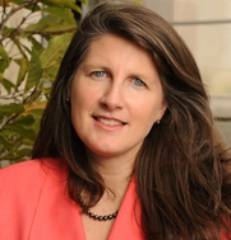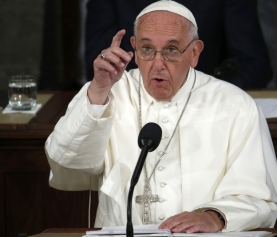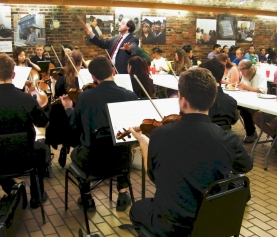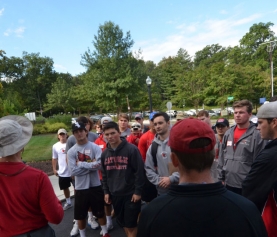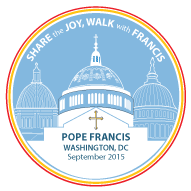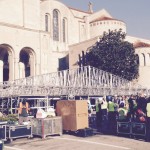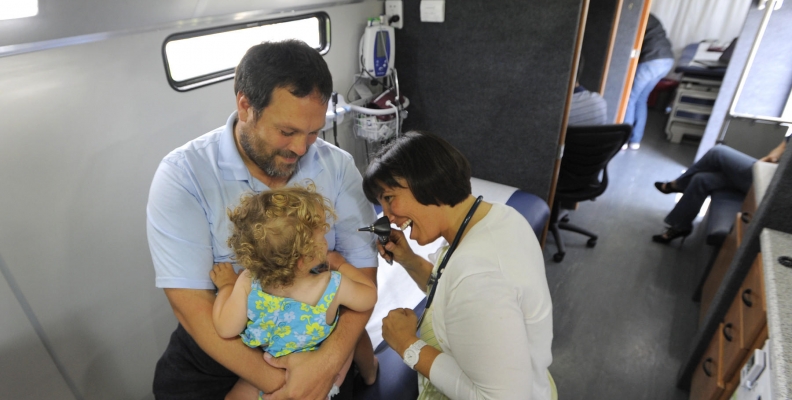
Linda Plitt Donaldson: Walking with Two Feet of Love
In a previous blog, I noted that Pope Francis has recognized the power of and need for grassroots movements to help build a just society where the economy functions at the service of the people. In calling for such action, Pope Francis stands with 125 years of Catholic social teaching beginning with Rerum Novarum, when Pope Leo the XIII addressed the rights of workers to organize and be paid a just wage to support their families. In Pacem in Terres, Pope John XXIII referenced organizing efforts when observing that the “longstanding inferiority complex of certain classes because of their economic and social status, sex, or position … is rapidly becoming a thing of the past.”
In Sollicitudo rei Socialis Pope John Paul II used the example of the “nonviolent demonstrations [of the poor] to present their needs and rights to oftentimes corrupt and inefficient authorities” as a “positive sign …[of a] growing … solidarity.” And now Pope Francis is putting hope in the power of community organizing to restore dignity to the poor and to care for our common home.
In 1970, the United States Conference of Catholic Bishops passed a resolution to start the Campaign for Human Development to address the structural causes of poverty by supporting the self-help efforts of communities to fight for and defend their right to live and flourish in a manner consistent with their dignity. For 45 years CCHD has been standing in solidarity with low-income communities in their efforts to demand justice and create economic opportunities that offer living-wage jobs.
The PICO National Network, founded by Jesuit priest Rev. John Bauman in 1972, has organized a #TellthePope campaign to highlight for the Pope the profound economic and racial challenges being experienced by families and communities in the United States. Through their Year of Encounter campaign, PICO is challenging communities to engage in “radical encounters of inclusion and to organize for workers’ rights.” At the World Meeting of Families in Philadelphia, they hope to convey the message to Pope Francis that poverty and racism are critical issues in the United States that ravage families and perpetuate the cycle of poverty.
Social workers have long been involved in organizing. They have organized and fought for the rights of children, women, workers, people of color, and people who are poor. The profession includes social justice giants such as Dorothy Height, Whitney Young, and Ron Dellums and lesser-known organizing heroes such as Diana Ming Chan and Antonia Pantoja.
Social workers continue to be engaged in organizing for social justice on a range of issues. For example, Elizabeth Alex is the lead organizer for Casa de Maryland, fighting for the rights of immigrants. Hannah Kane is organizing for the rights of workers with the DC Employment Justice Center. Adam Schneider is fighting for the rights of people who are homeless with Health Care for the Homeless in Baltimore.
The social work profession is largely known for the clinical and direct services it provides to vulnerable and marginalized populations. Yet, the profession also has a legacy of community organizing and social reform that enables it to address both immediate needs and structural causes of poverty and human suffering. Catholics refer to that as walking with two feet of love in action. This is what Pope Francis is calling all of us to do, and the social work profession walks tall and proud with him in our shared vision of justice, mercy, and compassion in the world.
– Linda Plitt Donaldson is an associate professor at The Catholic University of America National Catholic School of Social Service.

